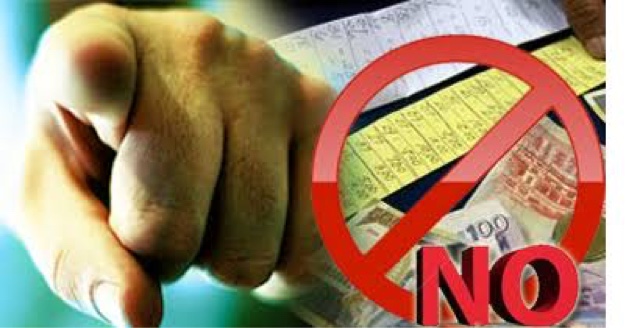Beware of Buying Secondhand Goods, To Avoid Violating Anti-Fencing Law of 1979
Before you buy a secondhand item or goods, you have to make it sure that the same came from a legitimate source, otherwise, you might be indicted with the crime violating an Anti-Fencing Law of 1979. It is common for us that we buy secondhand items or goods impulsively especially gadgets that are sold at a very low price. Before you know it, you are buying gadgets which are relatively "GSM" or "GALING SA MAGNANAKAW" and you might see yourself defending in court.
| Secondhand goods sold in the market. Courtesy of bing images. |
As defined in Presidential
Decree No. 1612 or otherwise known as the Anti-Fencing Law of 1979, fencing is
the act of any person who, with intent to gain for himself or for another,
shall buy, receive, possess, keep, acquire, conceal, sell or dispose of, or
shall buy and sell, or in any other manner deal in any article, item, object or
anything of value which he knows, or should be known to him, to have been
derived from the proceeds of the crime of robbery or theft.
Accordingly, any
person, firm, association, corporation or partnership or other organization
who/which commits the act of fencing is called as fence.
So what are the
penalties for any person guilty of fencing?
1.
The penalty of prision mayor, if the value of
the property involved is more than P12,000.00 pesos but not exceeding
P22,000.00 pesos; if the value of such property exceeds the latter sum, the
penalty provided in this paragraph shall be imposed in its maximum period,
adding one year for each additional P10,000.00 pesos, but the total penalty
which may be imposed shall not exceed 20 years.
In such cases, the penalty shall be termed reclusion temporal and the
accessory penalty pertaining thereto provided in the Revised Penal Code shall
also be imposed.
2.
The
penalty of prision correccional in its medium and maximum periods, if the value
of the property robbed or stolen is more than P6,000.00 pesos but not exceeding
P12,000.00 pesos.
3.
The
penalty of prision correccional in its minimum and medium periods, if the value
of the property involved is more than P200.00 pesos but not exceeding P6,000.00
pesos.
4.
The
penalty of arresto mayor in its medium period to prision correccional in its
minimum period, if the value of the property involved is over P50 pesos but not
exceeding P200.00 pesos.
5.
The
penalty of arresto mayor in its medium period if such value is over P5.00 pesos
but not exceeding P50.00 pesos.
6.
The
penalty of arresto mayor in its medium period if such vale does not exceed
P5.00 pesos.
The values mentioned
above were based in the year 1979. It
may sound not anymore practical as of this moment but what has been stated in
the law should be followed unless the Congress shall make necessary amendments
to attune and adjust what is practical today.
If the fence is a
partnership, firm, corporation or association, who would be liable?
It is the president or
the manager or any officer thereof who knows or should have known the
commission of the offense shall be liable.
Take note that mere
possession of any goods, item, object, or anything of value which has been the
subject of robbery or thievery shall be prima facie evidence of fencing.
If you are engaging in
the business of buying and selling secondhand articles, here is what you should
do in order to avoid lawsuit in connection to this law:
All stores,
establishments or entities dealing in the buy and sell of any good, article,
item, object or anything of value obtained from an unlicensed dealer or
supplier thereof, shall before offering the same for sale to the public, secure
the necessary clearance or permit from the station commander of the Philippine
National Police in the town or city where such store, establishment or entity
is located.

Comments
Post a Comment